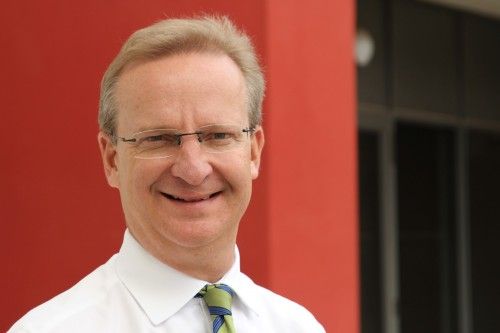Nedbank to See South Africa Green Energy Loans Jump to $3 Billion

To solidify its position as the market leader in financing renewable power projects, Nedbank Group plans to nearly treble the amount of money it lends to green energy projects in South Africa over the next two years.
According to chief executive officer Mike Brown, the bank’s lending to the government’s Renewable Independent Power Producer Program, which aims to increase privately generated electricity in the country, could increase from 29 billion rand to about R50 billion ($3 billion) in the “short-to-medium term.”
After President Cyril Ramaphosa freed the private sector in an effort to end the energy crisis that has been stifling Africa’s biggest industrialized economy, demand for funding renewable energy projects is expected to soar. Government regulations limiting private power generation to 100 megawatts were removed, enabling businesses to generate electricity for their own use and to sell to the grid without obtaining a license.
In order to hasten the country’s shift away from its over 80% reliance on coal and toward cleaner energy sources, the state increased its procurement of renewable energy by double to 5,200 megawatts under the so-called bid window six tender. Eskom Holdings SOC Ltd.’s recent blackouts, which shut off enough electricity to light 4 million households, have authorities scrambling to prevent a repeat.
According to Bruce Stewart, Nedbank CIB’s Head of Debt Capital Market Origination, the issuance of the Renewable Energy Bond is an important component of Nedbank’s commitment to providing real financial support to initiatives that help achieve the SDGs of the United Nations.

Stewart noted that Nedbank recently underwent a process to align its commercial activities with the SDGs in order to fulfill this commitment to sustainable development. As a result, a sizeable portion of the bank’s lending book has been committed to sustainable activities, particularly in renewable energy.
Green Energy Frenzy Among African Nations
According to the International Renewable Energy Agency, countries like Egypt, Ethiopia, Kenya, Morocco, and South Africa have demonstrated a strong commitment to accelerating the use of modern renewable energy and are leading energy transition efforts. Some of Africa’s smaller countries, like Cape Verde, Djibouti, Rwanda, and Swaziland, have also set ambitious renewable energy targets. Renewable energy is gaining popularity across the continent, and others are following suit.
With the goal of accelerating energy availability and fostering sustainable economic growth, Africa’s renewable energy mix has increasingly evolved away from traditional hydropower and thermal plants to renewable alternatives.
With more compelling argument for clean energy rising in Africa right now, there has been high demand for energy due to reasons such as population expansion, rising urbanization, industry and trade, and climate change, among others.
With transformative private sector investments in nations like Morocco, Kenya, Senegal, and Zambia that have led to some of the best tariffs in Solar PV in the world, the learning curve for clean energy deployment in Africa is getting better against a backdrop of dramatic declines in the cost of renewable energy technologies.
Nedbank has consistently led the market in ensuring that South Africa’s transition into green energy. CEO, Mike Brown had noted that almost 10% of Nedbank’s $1trillion rand balance sheet has been allocated to initiatives that support the UN’s sustainable goals.
In the next 10 to 20 years, Brown said, ” We absolutely think that working with advising and financing our clients as they change their energy mix and that of the countries they operate in. This is a massive opportunity for us and one that we absolutely aim to continue to lead in.”
